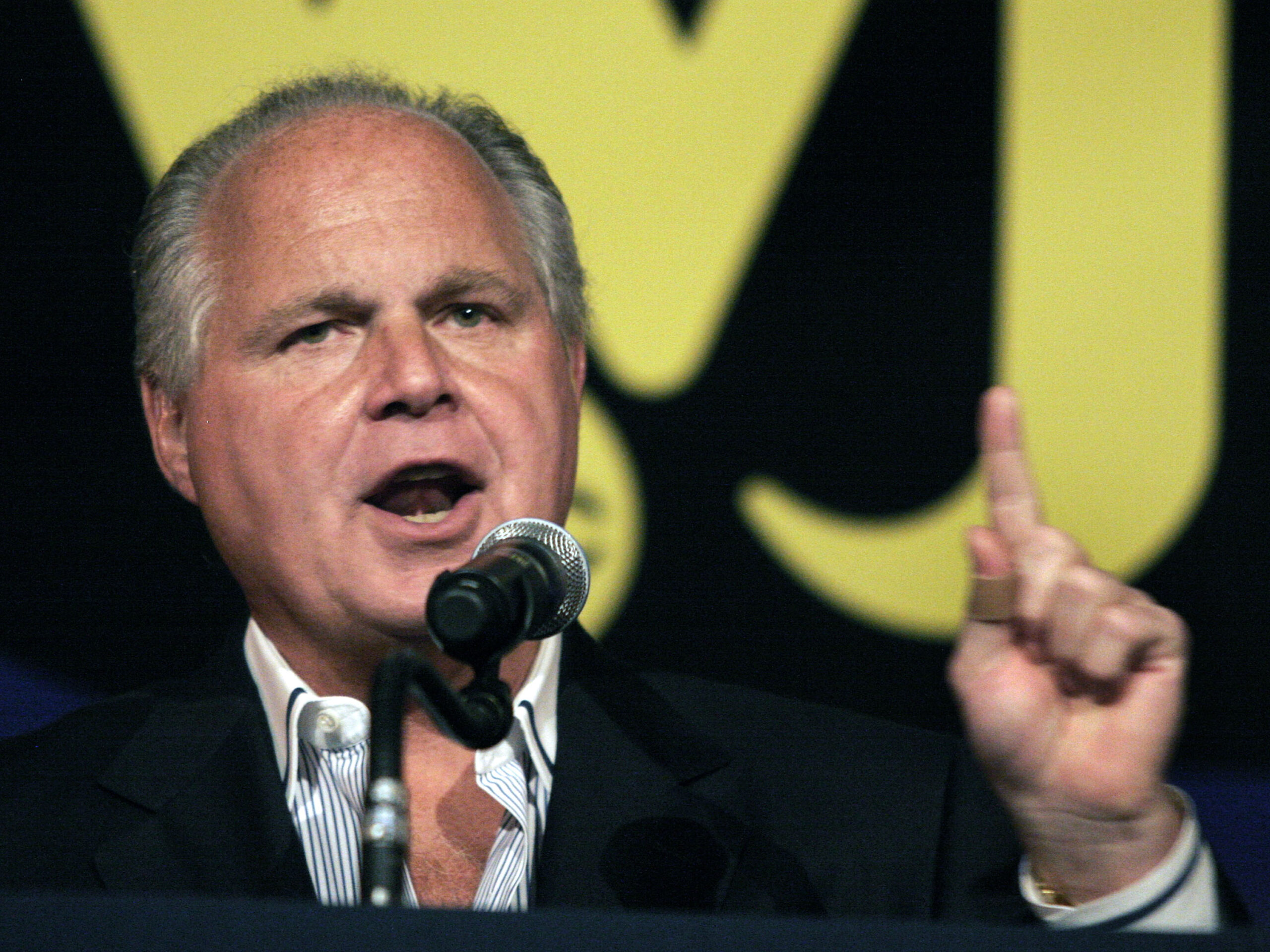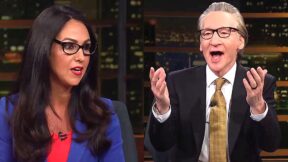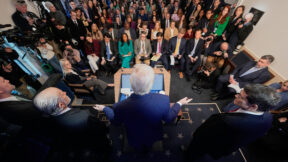Rush Limbaugh and Conservative Media Isolation Were Ultimately Devastating For His Own Cause

Bill Pugliano/Getty Images
Since the death of talk radio legend Rush Limbaugh, there has been much discussion, most of it driven by overt political biases and agendas, regarding his legacy. As one (the only?) of the last true anti-Trump conservatives from the realm of talk radio, and someone who had significant interaction with Limbaugh, I come at this topic from a unique perspective.
Like almost all conservative radio talk show hosts who went into the business in the 1990s, I was largely inspired to do so by Rush Limbaugh, whom my grandfather considered to be a real hero. Rush was an extremely talented, often hilarious broadcaster who literally created a new format, which appeared designed to combat the extreme, institutional liberal slant of the establishment news media.
At first, led by Rush, talk radio indeed allowed for a conservative perspective on the news, one which the mainstream media systematically ignored or demeaned, to be heard by an audience large and diverse enough for it to have a real impact on our politics. For instance, the historic Republican takeover of Congress in 1994 was largely credited to talk radio in general, and Rush Limbaugh in particular.
As often happens with successful new endeavors with good intentions, however, things eventually went too far and fell apart. Instead of creating a way for an alternative and conservative viewpoint to be injected into the mainstream news media, along with the advent of Fox News and the Drudge Report, the “conservative media” began to isolate itself, ultimately preaching only to the already converted, mostly because that was the way to make the easiest and most reliable profits.
The long-term impact of this has been the opposite of what was originally perceived to be the goal. Instead of conservatives getting their message out to people who were being brainwashed by the liberal establishment, they allowed that element of the media to totally dominate a smaller but still enormously influential portion of the news landscape, effectively ceding the field of battle while living under the delusion that they are actually winning a war against the former liberal media monopoly.
In practical terms, reporters like Brit Hume, John Stossel, Bernard Goldberg, Sharyl Attkisson, and Lara Logan, all of whom are right of center and used to have large roles in maintaining some semblance of balance in the “liberal media,” are no longer there. Because conservatives understandably abandoned “mainstream” media outlets for talk radio and Fox News, those news organization no longer have any financial incentive to be even fair to them and, especially since ratings have eroded due to massive fragmentation, actually now have an even greater self-interest to cater to their base audience of liberals, essentially using the very same “make our audience feel good at all journalistic costs” model as the conservative media has been using.
It could not be clearer that this nation is far more liberal now than when Limbaugh began his national radio show in 1988. There are obviously a lot of unrelated reasons for the liberal evolution of American politics over the last generation, but there is no doubt that this phenomenon was a factor, and that this unfortunate reality needs to be a significant part of Limbaugh’s legacy.
For instance, in the five presidential elections before Limbaugh became a major political figure (I am being generous to Rush by including 1988 in this equation), Republicans won four of them by margins that would be considered landslides by today’s standards. But in the nine presidential elections that occurred after Rush’s national show began, Republicans only won four of them, and three of those easily could have gone the other way.
This is clearly not all Limbaugh’s fault, but he and the balkanization of conservative media he birthed are a significant part of this complicated calculation. This is most obviously, and somewhat paradoxically, seen in his role in the emergence of Donald Trump as the king of the Republican Party and a one-term, twice-impeached, president.
As someone who was once groomed by to be one of Rush’s fill-in hosts, I believed him, based on my own communications with him and others in my sphere who knew him very well, to be a remarkably insecure man (as people who appear to have huge egos often are). This created a crippling fear in him: If, in 2015 when Trump — a man he knew to be neither conservative nor qualified — suddenly emerged as the Republican frontrunner, he did the right thing and stood up to Trump’s coup and lost he would end his glorious career irrelevant and disgraced. (Unfortunately we now live in a world where Mitt Romney appears to be the only successful person willing to endure such a fate if the only reward is having stood up for principle).
It was far easier, especially since Trump was a friend of his, to go along with the insanity — which just happened to be good for his diminishing ratings — even if it put the cause of conservatism, which was supposedly the whole point of his program, to be put in peril. As it turned out, while Trump was indeed more conservative on judges and a few other issues than people like me feared, partially due to the pandemic, history will record that conservatism officially died, and America became a socialist nation, under the watch of the man Rush Limbaugh endorsed for president.
That is an undeniable fact which must be a huge part of how Rush Limbaugh is remembered. He was a great broadcaster and a far better person than the left likes to pretend that he was, but ultimately he probably did more to harm conservatism than he did to promote it.
Ironically, instead of condemning him in death, liberals should actually be celebrating Rush Limbaugh’s role in helping them transform America into the socialist dystopia of their dreams.
This is an opinion piece. The views expressed in this article are those of just the author.
New: The Mediaite One-Sheet "Newsletter of Newsletters"
Your daily summary and analysis of what the many, many media newsletters are saying and reporting. Subscribe now!






Comments
↓ Scroll down for comments ↓